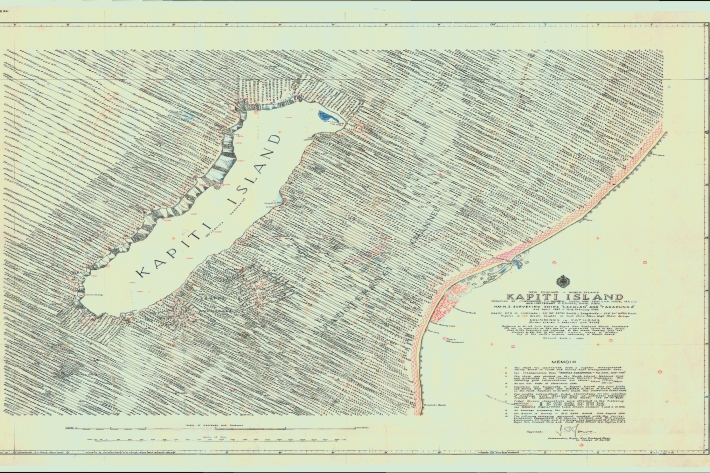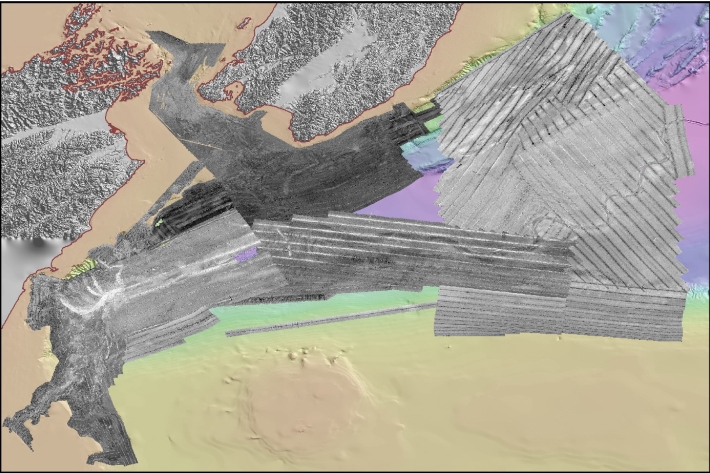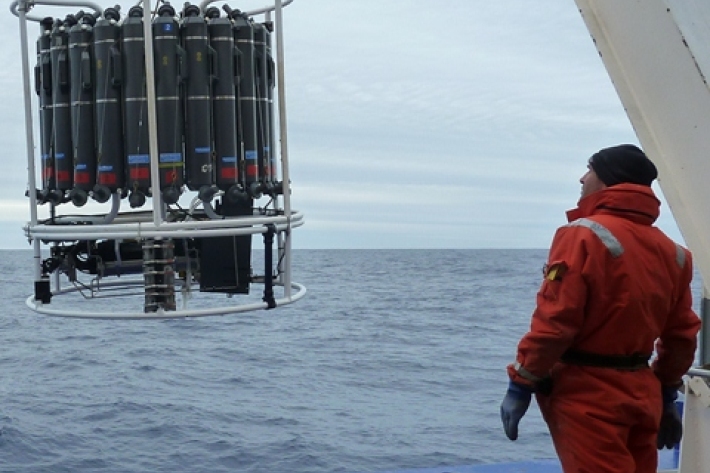-

Revealing Kapiti Island's submarine landscape
Research ProjectWe are using modern techniques to map seafloor surrounding Kapiti Island, an area of significant cultural and environmental value to New Zealand. -

Backscatter Measurement Guidelines
Research ProjectMarine scientists have long recognized the potential of using remotely-sensed data, most often acquired using a sonar system, as a proxy of biophysical indicators. -

Ocean acidification and warming
Research ProjectAcidification of the world’s oceans from rising atmospheric carbon dioxide levels reduces the availability of carbonate required by some marine organisms to build shells and skeletons, and potentially affects their ability to maintain existing structures. -

Marine environmental monitoring in New Zealand
Research ProjectLong-term datasets that track persistent change in the environment are a critical component of any modern ecosystem-based approach to natural resource management and sustainable growth. -

Oceans 20/20
Research ProjectThe Ocean Survey 20/20 (OS 20/20) programme aims to provide NZ with better knowledge of its ocean territory. -

Coastal and oceanic dispersal modelling
Research ProjectUnderstanding how material released into the ocean spreads is very important in the case of oil spills, sediment transport and the release of invasive species. -

Chemistry-climate modelling
Research ProjectThis research project focusses on modelling atmospheric chemistry and climate from the surface to the top of the stratosphere, using sophisticated chemistry-climate models. -

Marine food webs
Research ProjectWe need information on the food web structures of our marine ecosystems in order to manage the effects on the ecosystem of fishing, aquaculture and mining, as well as understanding the potential impacts of climate variability and change on our oceans. -

Kaikoura Canyon survey
Research ProjectNew Zealand's Kaikoura Canyon is a 'biodiversity hotspot', containing far more life than seen before at such depths. -
Restoration of seagrass beds in Whangarei Harbour
Research ProjectSeagrass beds form an important undersea habitat for small fish, seahorses and shellfish in New Zealand. -

Predicting long-term sedimentation and heavy metal accumulation in estuaries
Research ProjectNIWA has developed an Urban Stormwater Contaminant (USC) model to enable urban planners to predict sedimentation and heavy metal accumulation in estuaries and identify problem areas in order to target mitigation measures.


